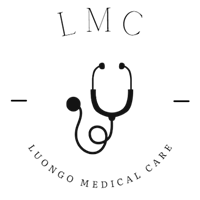IF YOU HAVE AN AUTOIMMUNE DISORDER, YOUR OWN IMMUNE SYSTEM ATTACKS THE HEALTHY CELLS OF YOUR JOINTS, EYES, LUNGS, SKIN, NERVES AND ALL ORGANS IN THE BODY, BY MISTAKE!!! You may have lupus, multiple sclerosis, rheumatoid arthritis, psoriasis, Sjogran’s, and others. You may experience pain, fatigue, dizziness, skin rash, depression, joint swelling, fatigue. Many frustrated patients are misdiagnosed – the average time it takes your doctors to make the correct diagnosis is 4.5 years! Some young children develop an autoimmune disease prior to age 12.
What are autoimmune diseases?
An autoimmune disease is the result of the YOUR immune system accidentally attacking your body instead of protecting it. It’s unclear why your immune system does this.
There are over 100 known autoimmune diseases. Common ones include lupus, rheumatoid arthritis, Crohn’s disease and ulcerative colitis. Psoriasis and celiac disease are common and often initially misdiagnosed and undertreated.
Autoimmune diseases can affect many types of tissues and nearly any organ in your body. They may cause a variety of symptoms including pain, swelling, tiredness (fatigue), rashes, nausea, headaches, dizziness and more. If left untreated, you may develop breathing issues, kidney problems.
Why does this happen?
Experts don’t know why your immune system turns against you. Your body’s immune system appears to not be able to know, like it can no longer tell the difference between what’s healthy and what’s not — between what’s you and what’s an invader. There are some theories about why this happens, but experts aren’t completely sure.
How common are autoimmune diseases?
Many autoimmune diseases are more common in women than in men. The diseases are common — 1 in 15 people in the U.S. have an autoimmune disease.
What causes autoimmune diseases?
The precise cause of autoimmune diseases is unknown. However, there are risk factors that may increase your chances of getting an autoimmune disease. Risk factors include:
- Having relatives with autoimmune diseases. Some diseases are genetic — they run in families.
- Smoking.
- Already having one autoimmune disease. You’re at a higher risk of developing another.
- Exposure to toxins and heavy metals.
- Being female — 78% of people who have an autoimmune disease are women.
- Obesity.
- Infections, such as COVID-19.
What are the autoimmune disease symptoms?
Joints and muscles:
- Muscle aches and pains.
- Joint pain, stiffness and swelling.
- Muscle weakness.
- Inflammation.
Digestive tract:
- Bloating.
- Constipation.
- Abdominal pain.
- Acid reflux.
- Nausea.
- Food sensitivities.
- Blood or mucus in stool (poop).
Skin:
- Rashes.
- Itching.
- Dry eyes.
- Dry mouth.
- Hair loss.
- Dry skin.
Nervous system:
- Dizziness.
- Headaches.
- Anxiety and depression.
- Confusion and difficulty thinking.
- Blurry vision.
- Insomnia.
- Memory issues.
- Migraines.
- Lightheadedness.
- Numbness and tingling.
Other:
- Fatigue.
- Pain.
- Fever.
- Chest pain.
- Swollen glands.
- Weight gain or loss.
- Rapid or irregular heartbeat.
- Shortness of breath.
- Temperature sensitivity.
DIAGNOSIS
Diagnosing an autoimmune disease usually takes healthcare providers longer than it does to diagnose other diseases (average 4.5 yrs). This is because many autoimmune diseases have similar symptoms with each other and with other diseases.
